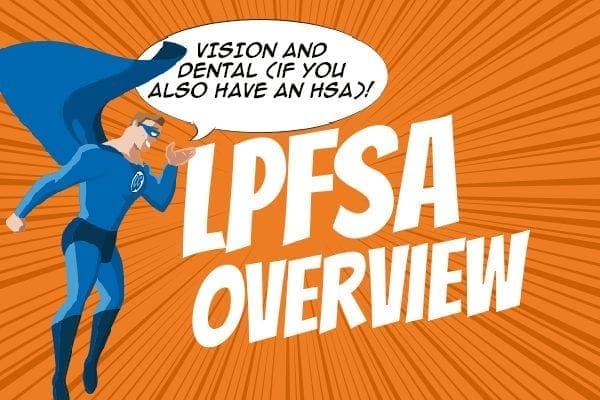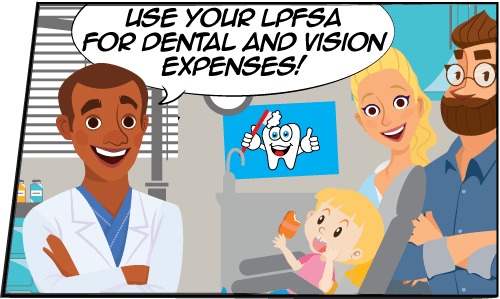

Limited Purpose FSA Overview
A limited purpose FSA (LPFSA) is a tax-advantaged benefit account for people who also have an HSA. However, as the name says, its use is limited. An LPFSA can only cover qualified vision and dental expenses.
LPFSA Qualified Expenses
With an LPFSA, participants are restricted on what the account can cover. Basically, an LPFSA is for vision and dental expenses only. Common eligible expenses include:
Vision
- Co-insurance, copayments, deductibles for vision insurance plans
- Contact lenses and solution
- Eye exams
- Eyeglasses
- Vision procedures (Laser eye surgery, Lasik, etc.)
Dental
- Co-insurance, copayments, deductibles for dental insurance plans
- Dental care (non-cosmetic)
- Dentures, bridges, and certain veneers
- Orthodontia
- Dental x-rays
Contact your benefits administrator for a full list of eligible expenses.

LPFSA Contributions
The money put into the LPFSA is on a pre-tax basis. That means you don’t pay taxes on what goes into the account. Plus, you use the money tax-free for qualified expenses.
FSA Contribution Limits
In 2026, participants may choose to set aside up to $3,400 in their FSA.
Use It or Lose It, Grace Period or Rollover
Depending on your company’s plan setup, your LPFSA will have one of the following:
- 2.5 month grace period to spend unused funds, or
- Carryover of up to $660 to the next plan year, or
- “Use it or lose it” – if the money hasn’t been used, you lose it
No Double-Dipping on Claims!
Since you have an LPFSA with an HSA, there is one important rule. If you claim an expense through your LPFSA, you cannot claim it again through your HSA (and vice versa).
One tip to maximize usage of your accounts is to pay for your vision and dental costs first from the LPFSA until the money is gone. That way, you can take advantage of the tax-free account growth with your HSA.
Share:

FSA Contribution Limits
In 2026, participants may choose to set aside up to $3,400 in their FSA.
